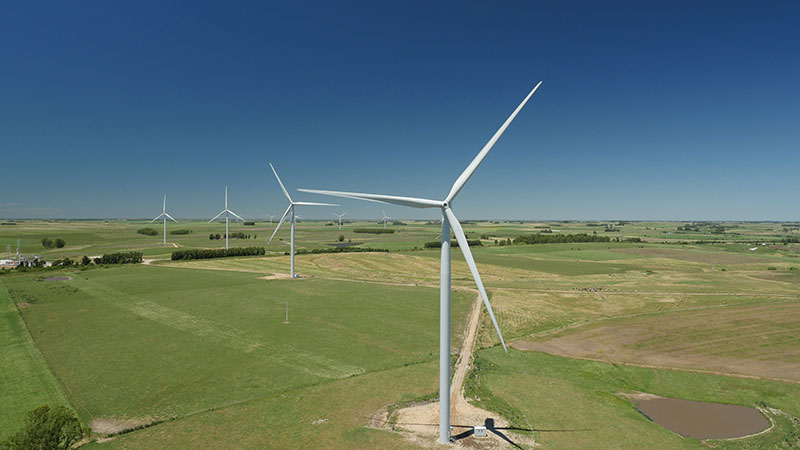Presentations
For this seminar, we interviewed Gonzalo Casaravilla, President of the Board of the Uruguayan national electricity company, UTE, who has been responsible for the transition to renewable energy in the South American country. In the interview he explains how Uruguay succeeded in rapidly scaling up renewable energy generation, its efforts to get universal access, how the country avoided privatisation, and why it turned to private sector investment for some of its electricity generation (while maintaining public control of the energy grid).
We also feature a short interview with Jo Ram about efforts by a campaign, SwitchedOn London, to set up a municipal public energy company in UK’s capital city. The campaign seeks to challenge the monopoly of the ‘Big Six’ private energy monopolies, while addressing the city’s chronic problems of fuel poverty, energy inefficient homes, and poor renewable energy adoption. The campaign has already secured a commitment for a public energy utility from the new London Mayor, Sadiq Khan.
Regarding democratization (democratic control) of municipal /state energy companies, the proposals from SwitchedOn London campaign provides some useful concrete ideas to think how democratic mechanisms could be developed in different places.
Board of directors made up of: one third London public officials; one third energy company employees elected democratically by the whole energy company workforce; and one third ordinary London residents, elected democratically with all London residents and all non-London customers given a vote. Board membership must guarantee at least 50% representation of women.
Annual open assemblies in every London borough, where representatives of the company have to answer questions and take input and advice.
The creation of an online democratic forum where people can discuss and influence the company’s operations, including through public petitions.
An obligation for an online referendum on a proposal, if backed by 5% of London’s population. 100% transparency in all operations. These democratic measures apply to all London residents, regardless of citizenship/nationality status.
Webinar
The webinar featured contributions from
Daniel Chavez, Uruguayan researcher on state enterprises, Transnational Institute
Ann Josey, Prayas Energy Group, India
Further reading
Uruguay: revolution rather than energy transition (Heinrich Boll Foundation) https://us.boell.org/2016/06/20/uruguay-revolution-rather-energy-transition
The meaning, relevance and scope of energy democracy
Fiona Dove talks with Daniel Chavez
https://www.tni.org/en/article/the-meaning-relevance-and-scope-of-energy-democracy
Energy efficiency policy in Uruguay by Ramón Méndez Secretary of Energy (powerpoint presentation)
https://www.efficiency-from-germany.info/ENEFF/Redaktion/DE/Downloads/Publikationen/Praesentationen/2012_iv_uruguay_praesentation_1.pdf?__blob=publicationFile&v=3
Prayas Energy Group, Review of Maharashtra Power Sector Policy and Regulation – Lessons, Challenges and Opportunities http://www.prayaspune.org/peg/publications/item/301-review-of-maharashtra-power-sector-policy-and-regulation-lessons,-challenges-and-opportunities.html
The Costa Rican Electricity Institute: an exceptional public enterprise in an atypical social democracy (TNI) https://www.tni.org/en/article/the-costa-rican-electricity-institute-ice-an-exceptional-public-enterprise-in-an-atypicall
Alternatives to privatisation: Public options for essential services (book)
http://www.municipalservicesproject.org/publication/alternatives-privatization-public-options-essential-services-global-south
City case-studies on a new ‘Energy Democracy’ website
-Switched On London: Clean, affordable energy. For people, not for profit: https://energy-democracy.net/?p=553
-Boulder’s long fight for local power https://energy-democracy.net/?p=752
-Nexus between community and municipal power in Bristol’s quest for energy democracy : https://energy-democracy.net/?p=704
-A promising attempt to reclaim Berlin’s energy supply: https://energy-democracy.net/?p=557
More materials from Prayas Energy Group:
-Privatization or Democratization – although dated, it provides a historical overview and an analysis of the initial days of regulation when a lot of public processes where introduced
-The Electricity Governance Initiative Toolkit – A multi-country initiative that proposed an analytical framework to evaluate policy and regulatory processes in the electricity sector with an emphasis on social and environmental issues
-Electricity for All: Ten Ideas to Turning Rhetoric into Reality – Ideas that could improve electricity service to the poor
Switchedon London: Democratic Energy in the Capital http://issuu.com/lh1188/docs/nef04_a4_switched_on_report_awk2_pa/1?e=14661892/34734794 – Report by the campaign that explains the rationale for a municipal energy company
German Energiewende experience – Background on the initiative –http://energytransition.de/ A critique; a defense
American Public Power association – US body representing 2,000 community-owned electric utilities, serving more than 48 million people or about 14 percent of the nation’s electricity consumers.
To continue the Democratising Energy Peer Learning Course:
- Session 4: Labour and trade unions in the energy transition
- Session 5: Energy poverty and access
- Session 6: Technology for the energy transition
